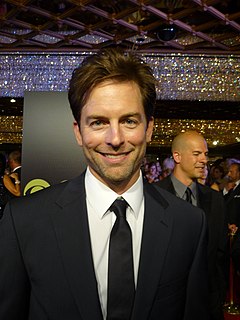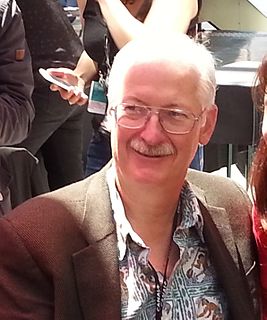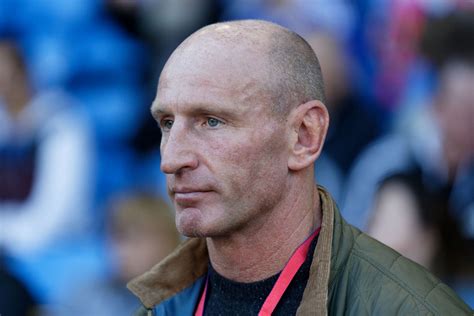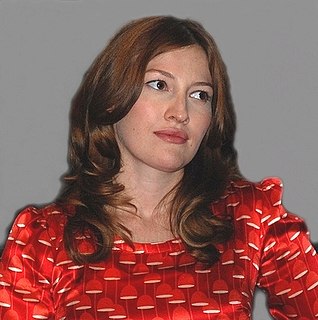A Quote by Rowan Atkinson
What directors of television drama constantly tell you is 'Don't act it. Don't try. Don't emphasise that word'. Whereas with someone like Blackadder, even though he's a relatively low key character in a way, he did relish the lines that he had and the words that he was given, with a lot of inflection.
Related Quotes
This word "redemption," what is it about this word? Is it tangible? Do you know when it has happened? Is it necessary in a drama? Does it make a character boring? Does everyone agree on a character being "redeemed?" Or is it a word that is so subjective and polarizing and insignificant in modern television? It is a word that has been given, quite possibly, far too much significance, when it is truly ambiguous and meaningless in a drama. I have personally grown to loathe that word in literature.
Stage is so important because it teaches me how to convey character with words - how to convey how a character reacts by the way they appear on stage. I can usually tell a playwright from someone who has never written for the stage. Did the character work? Did the dialogue reveal who the character is?
The first role I ever played I had the lead and it's pretty much stayed that way, though people take great relish in calling me a character actor, which I am. There are a lot of short parts I could play, but I only do them when they are like this ("A Few Good Men"), central to the idea of the movie.
I think if a writer is not endeavoring to expand and alter consciousness in himself and in his readers, he is not doing much of anything. It is precisely words, word lines, lines of words and images, and associations connected with these word and image lines in the brain, that keep you in present time, right where you are sitting now.
That was when I learned that words are no good; that words dont ever fit even what they are trying to say at. When he was born I knew that motherhood was invented by someone who had to have a word for it because the ones that had the children didn't care whether there was a word for it or not. I knew that fear was invented by someone that had never had the fear; pride, who never had the pride.
Funny bones, to me, are more important than funny lines. If a comedian is just not likable and doing the lines, you could read them yourself. Whereas if someone [you like] shambles out, and they tell you what a bad day they've had, they don't have to say anything. I love them. I want to hug them because they've been through something. And it comes back to empathy, always empathy.
When I first started out, it was very, very difficult to even get in the room with directors or casting directors because they would see that I hadn't been to drama school and wouldn't want to see me. Now, I feel like it's changing. We have this new generation of a lot of writers, directors and actors who are just breaking through, and they're doing it for the passion.
I learned a lot from Dick Wolf. I'll always remember playing that character because it was such a good character. It was great to be able to be a character like that for television. I think the thing that I'll bring from the whole experience, the whole 10 years, is I had never been interested in the television business before.
But if it couldn't be love and it didn't feel like lust, what was it? Like? Did he like her? Of course, he did, but that word didn't capture his feelings, either. It was a little too... vague and soft around the edges. People liked ice cream. People liked to watch television. It meant nothing, and it didn't come close to explaining why, for the first time, he felt the urge to tell someone the truth.

































